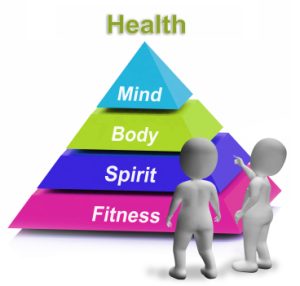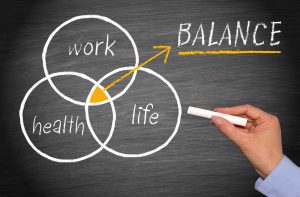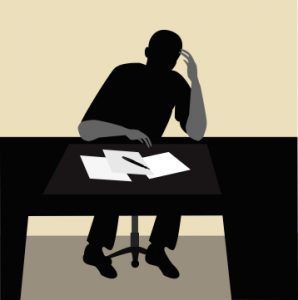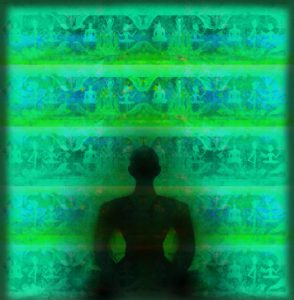Mindfulness Meditation: A Key to Stress Reduction
In an era where stress and anxiety pervade daily life, mindfulness meditation emerges as a beacon of relief and tranquility. This ancient practice, rooted in the recognition and acceptance of the present moment, holds profound implications for emotional and physical well-being. Despite its historical origins, mindfulness meditation has gained recognition in the modern world as a valuable tool for stress reduction and the management of anxiety. Through facilitating a state of calm awareness, individuals are empowered to navigate the complexities of life with a greater sense of ease and stability. By creating a space between your thoughts and your reactions, meditation allows you to witness the happenings in your mind without judgment, leading to a calmer and more focused state of being. Regular practice can not only make you feel better and more refreshed but also equip you with the skills to face daily challenges with a healthier attitude. Scientific research supports these claims, showing that meditation can improve symptoms of stress-related conditions and promote overall emotional and physical well-being.

The subsequent sections of this article will delve into a comprehensive exploration of mindfulness meditation, illuminating its connection to stress reduction and its myriad benefits to mental and physical health. Readers will gain insights into various meditation techniques, practical steps to initiate a meditation practice, and strategies to overcome common challenges encountered along the journey. Additionally, the discussion will extend to advanced meditation practices, offering pathways for further growth and exploration. The culmination of this discussion seeks to equip individuals with the knowledge and tools necessary to harness the power sunlocking a more serene and mindful existence.
Also if a professional and seeking certification as a Meditation Instructor or as a Stress Management Consultant, then please review and click the links at the end of the article with information about the programs.
Key Takeaways
- Meditation helps create a mental space between thoughts and reactions, fostering a calmer state of mind.
- Regular meditation practice can offer significant emotional and physical benefits, including improved sleep and reduced anxiety.
- Scientific studies have shown that meditation can alleviate symptoms of stress-related conditions like irritable bowel syndrome and PTSD.
- Various meditation techniques, such as mindfulness and loving-kindness meditation, are effective for stress relief.
- Incorporating meditation into daily life can be facilitated by setting up a dedicated space, choosing the right time, and using guided meditations.
Understanding Meditation
Mindfulness meditation is a mental training practice that focuses on slowing down racing thoughts, letting go of negativity, and calming both the mind and body. It involves being fully focused on the present moment, acknowledging and accepting thoughts, feelings, and sensations without judgment. This practice can be straightforward enough to learn on one’s own, but a teacher or program may be beneficial, especially if meditation is pursued for specific health reasons.
During mindfulness meditation, individuals become aware of their breath, noting the sensation of air moving in and out of their body and the temperature changes associated with breathing. The primary goal is not to stop thoughts but to become more comfortable observing them without reaction, using the breath as a stable point of focus.
Mindfulness involves various techniques that can help reduce stress and improve mental clarity. These include guided imagery, breathing methods, and other practices designed to relax the body and mind. Regular mindfulness exercises are beneficial, not only for stress reduction but also for lowering heart rate, improving immunity, and enhancing sleep quality.
Clinical studies have supported the effectiveness of meditation for various conditions including stress, anxiety, pain, depression, and insomnia. Mindfulness helps individuals experience thoughts and emotions with greater balance and acceptance, improving overall mental health and attention.
Structured mindfulness exercises such as body scan meditation, sitting meditation, and walking meditation are also effective. These practices involve focusing attention on different parts of the body or the act of walking, helping to cultivate a deeper awareness of the present moment. Practicing mindfulness can be simple and integrated into daily routines, enhancing one’s ability to live in the moment and engage with the world with an open and accepting attitude.
Mindfulness meditation encourages a non-judgmental attitude towards one’s thoughts and feelings, fostering a sense of curiosity and kindness towards oneself and others. This approach helps in exploring the present moment as it is, enhancing the capacity to manage life’s challenges with grace and resilience.
The Connection Between Meditation and Stress Reduction

Meditation has long been recognized for its ability to reduce stress, offering practitioners a sense of calm, peace, and balance that extends beyond the meditation session into daily life. By focusing on the present and engaging in mindfulness practices, individuals can clear away the information overload that contributes significantly to daily stress. This process not only helps in managing stress but also enhances overall emotional and physical well-being.
Meditation offers us a way to mitigate the effects of stress by influencing how our brains respond to stress triggers. It helps us temper our reactions, cultivate a more balanced response to stressors, and even befriend stress. Meditation gives us a helping hand in managing our stress levels, not by eliminating stress but by changing our relationship with it.
How Mindfulness Reduces Stress
Mindfulness meditation facilitates a unique mental state where one becomes more aware of their thoughts, allowing them to step back and not take these thoughts so literally, which prevents the stress response from initiating in the first place. This form of meditation encourages individuals to not immediately react to situations but instead, pause, use their “wise mind” to assess the situation, and then respond in the most appropriate manner. The practice switches the mind from a “doing” mode, associated with action and stress responses, to a “being” mode, which is linked to relaxation and a reduced stress response.
The Stress Breath Practice
A practical application of mindfulness in managing stress is the Stress Breath Practice, introduced by Andres Gonzalez. This technique involves a specific breathing practice that can be utilized in any stressful or anxious situation, helping to reset the brain and shift the body from a state of stress to one of calm. By using everyday objects as cues for the practice, such as car keys in Gonzalez’s example, individuals can create habitual responses that facilitate stress management throughout the day.
Guided Meditations for Stress
Guided meditations, like the body scan meditation, have been scientifically shown to reduce stress markers such as cortisol levels. Participants in these guided sessions report significant reductions in stress, evidenced by biological markers and personal reports of increased calm and reduced anxiety. These practices are particularly beneficial as they provide structured pathways for individuals to follow, potentially leading to more consistent and effective meditation practices.
Through these methods, mindfulness meditation not only helps individuals manage existing stress but also builds resilience against future stressors, enhancing both mental and physical health in the process. By incorporating mindfulness practices into daily routines, individuals can maintain a more balanced and stress-reduced lifestyle.
Scientific Studies on Meditation and Stress Reduction
Meta-Analyses and Systematic Reviews
Meta-analyses and systematic reviews have provided comprehensive insights into the efficacy of meditation for stress reduction. A meta-analysis including nearly 1,300 adults found that meditation may decrease anxiety. Notably, this effect was strongest in those with the highest levels of anxiety. These reviews often highlight the role of mindfulness-based interventions in reducing perceived stress and anxiety.
Longitudinal Studies
Longitudinal studies have shown that regular meditation practice can lead to sustained reductions in stress levels over time. For instance, an 8-week study on mindfulness meditation revealed a significant reduction in the inflammation response caused by stress. These findings suggest that the benefits of meditation extend beyond immediate stress relief to long-term health improvements.
Randomized Controlled Trials
Randomized controlled trials (RCTs) are considered the gold standard in clinical research. RCTs on meditation have demonstrated its effectiveness in managing stress-related conditions. For example, a study titled “The Neuroscience of Mindfulness Meditation” found that mindfulness meditation can improve both mental and physical health. Another RCT comparing meditation and exercise for preventing acute respiratory infection showed that meditation could be a viable alternative to traditional medical interventions.
The effect of conscious mindfulness-based informative approaches decreased the perceived stress and anxiety of the patients in the experimental group, highlighting the practical benefits of meditation in clinical settings.
Benefits of Meditation on Mental Health
Meditation offers a multitude of benefits for mental health, primarily by instilling a sense of calm, peace, and balance that enhances overall emotional well-being. By fostering a new perspective on stress-inducing situations, meditation builds skills that help individuals manage stress more effectively. This practice increases self-awareness, focuses attention on the present, and reduces negative emotions, which collectively contribute to improved mental health.

Reduction in Anxiety and Depression
Meditation has been consistently linked to lower rates of anxiety and depression. The practice helps by altering brain function; it reduces the activity in the amygdala, known for its role in processing fear and stress, and it disengages the prefrontal cortex that often exacerbates stress and anxiety. Regular meditation leads to changes in these brain areas, which are particularly relevant in the context of depression and anxiety. Studies have shown that mindfulness, whether innate or cultivated through meditation, correlates strongly with reduced symptoms of these mental health conditions. Additionally, meditation practices like mindfulness-based cognitive therapy blend cognitive behavioral techniques with meditative practices, effectively reducing anxiety and depression by altering negative thought patterns.
Improvement in Emotional Well-being
Mindfulness meditation enhances emotional well-being by teaching individuals to engage with the present moment in a non-judgmental and accepting manner. This increased mindfulness leads to better emotional regulation and reduces tendencies toward anger and negative mood states. The practice of mindfulness can significantly increase self-awareness, allowing individuals to recognize and manage negative thoughts and mood patterns more effectively. Moreover, various forms of meditation, including guided imagery and walking meditation, contribute to an enhanced state of mental clarity and emotional tranquility. The ability to maintain focus on the present and to manage one’s reactions to stress and anxiety not only alleviates current symptoms but also contributes to long-term emotional resilience.
Physical Health Benefits of Meditation
Reducing Blood Pressure
Meditation techniques such as Transcendental Meditation and mindfulness-based stress reduction have been shown to produce clinically significant reductions in both systolic and diastolic blood pressure. These techniques can be effective as standalone treatments or alongside traditional pharmacotherapy, offering small yet meaningful reductions in blood pressure. Studies suggest that the efficacy of meditation in reducing blood pressure is comparable to that achieved with single-agent drug therapy, highlighting its potential as a valuable tool in managing hypertension. Furthermore, meditation can be efficiently and effectively delivered, potentially reducing the need for laboratory monitoring or frequent prescription refills, and generally exhibits few and rare side effects.
Research also indicates that various meditation practices can modestly lower blood pressure, as affirmed by an American Heart Association scientific statement. Techniques designed to evoke the relaxation response, developed by Dr. Herbert Benson, have been particularly helpful in managing high blood blood pressure and other stress-related disorders. This relaxation response counters the stress-induced fight-or-flight response, promoting a state of restful alertness that beneficially impacts cardiovascular health. Heart Rate Variability (HRV) is a key indicator of autonomic nervous system function and overall cardiovascular health. Regular meditation practice has been linked to improved HRV, which reflects a better balance between the sympathetic and parasympathetic nervous systems. This balance is essential for maintaining a calm state and preventing new damage from the physical effects of stress.
Meditation has been shown to significantly reduce cortisol levels, the primary hormone associated with stress. Cortisol reduction is crucial as elevated levels can disrupt sleep, promote depression and anxiety, increase blood pressure, and contribute to fatigue and cloudy thinking.
Boosting Immune Function
Meditation has been found to robustly activate the immune system, with studies showing increased activity in genes related to the immune response following meditation practices. Notably, meditation led to heightened activity in genes associated with interferon signaling, which plays a crucial role in the body’s defense against viruses and potentially severe illnesses like COVID-19. This suggests that meditation can enhance the body’s natural defense mechanisms, contributing to improved overall health and resilience against infections.
Additionally, mindfulness meditation has been shown to influence several key aspects of the immune system, including reducing markers of inflammation and increasing the number of CD-4 cells, which are vital for orchestrating the immune response to infections. Regular meditation practice has also been associated with increased telomerase activity, which helps maintain chromosome stability and prevents premature cellular aging. This can lead to better immune function and reduced susceptibility to a variety of age-related diseases.
In summary, mindfulness meditation not only helps in reducing blood pressure but also enhances immune function, providing a holistic benefit to physical health. These interventions can be integrated into daily routines, offering a sustainable approach to managing and improving overall health.
Enhanced Emotional Stability
Meditation has been shown to offer many benefits. Although it’s well known as a technique to reduce stress and anxiety, research shows that it may also help enhance your mood, promote healthy sleep patterns, and boost cognitive skills. Meditation can give you a sense of calm, peace, and balance that can benefit your emotional well-being and your overall health.
Reduction in Anxiety Symptoms
Meditation is the habitual process of training your mind to focus and redirect your thoughts. The popularity of meditation is increasing as more people discover its many health benefits. You can use it to increase awareness of yourself and your surroundings. Many people think of it as a way to reduce stress and develop concentration.
Improvement in Sleep Quality
People also use the practice to develop other beneficial habits and feelings, such as a positive mood and outlook, self-discipline, healthy sleep patterns, and even increased pain tolerance. Meditation can help you learn to stay centered and keep inner peace.
The emotional and physical benefits of meditation can include: giving you a new way to look at things that cause stress, building skills to manage your stress, making you more self-aware, focusing on the present, reducing negative feelings, helping you be more creative,
Different Techniques of Meditation

Mindfulness Meditation
Mindfulness meditation focuses on being present and fully engaged with whatever one is doing at the moment, free from distraction or judgment. Individuals practicing mindfulness learn to pay attention to their breath as it goes in and out and acknowledge when the mind wanders from this task. This practice helps in returning to and remaining in the present moment, anchoring oneself without judgment. Mindfulness can be simple yet requires patience, as it involves continually bringing one’s attention back to the breath or chosen object of focus. This technique fosters a deep engagement with the present moment and enhances personal awareness and acceptance.
Transcendental Meditation
Transcendental Meditation (TM) is a form of meditation that involves silently repeating a mantra to settle the mind and achieve a state of profound relaxation and balance. This technique, derived from the Vedic tradition, does not involve concentration or contemplation, making it distinct from mindfulness meditation. TM allows individuals to transcend thought, reaching a state of ‘pure awareness’ or restful alertness. The practice is usually taught by certified instructors through a standardized course, ensuring that each participant learns the technique properly to achieve optimal results.
Guided Meditation
Guided meditation is another effective technique, particularly beneficial for beginners who may require more structure in their practice. It involves following the spoken instructions of a guide or teacher, which can be delivered through audio recordings or in-person sessions. These meditations utilize visualizations and are often designed to target specific areas such as stress reduction, emotional healing, or personal growth. They help practitioners to focus their attention and achieve deeper levels of relaxation. Guided meditations are versatile and can include various elements such as mindful breathing, body scans, or visual imagery to enhance the meditation experience.
Each of these techniques offers unique benefits and can be chosen based on individual preferences and goals. Whether one seeks to improve concentration and presence through mindfulness, achieve deep relaxation with Transcendental Meditation, or explore structured pathways through guided sessions, these practices provide valuable tools for enhancing mental and physical well-being.
Loving-Kindness Meditation
Loving-Kindness Meditation (LKM) focuses on developing feelings of compassion and love towards oneself and others. This practice can help in reducing negative emotions and fostering a positive outlook, which is essential for stress relief.
Exploring different meditation techniques can help you find the one that best suits your needs. Regular practice is key to experiencing the full benefits of meditation.
Cultural and Historical Perspectives on Meditation
Meditation in Eastern Traditions
Meditation has been around for thousands of years, deeply rooted in Eastern traditions such as Buddhism, Hinduism, and Taoism. Mindfulness’ roots reach deep into Buddhism, where it was originally practiced to deepen understanding of the sacred and mystical forces of life. In Hinduism, meditation is a key component of yoga, aimed at achieving spiritual enlightenment. Taoist meditation focuses on harmonizing the body, mind, and spirit with the Tao, or the fundamental nature of the universe.
Western Adoption of Meditation
In more recent years, mindfulness has become a popular way to help people manage their stress and improve their overall well-being. The Western adoption of meditation began in the 20th century, influenced by Eastern philosophies and practices. Psychologists have found that mindfulness meditation changes our brain and biology in positive ways, improving mental and physical health. This has led to the integration of meditation into various therapeutic practices and wellness programs.
Evolution of Meditation Practices
Meditation practices have evolved over time, adapting to the cultural and societal needs of different eras. Initially, meditation was primarily a spiritual practice, but it has since expanded to include secular applications. Today, there are two major styles of meditation: focused-attention meditation and open-monitoring meditation. Focused-attention meditation concentrates on a single object, thought, or sound, while open-monitoring meditation encourages awareness of all aspects of one’s environment and self.
Meditation is a type of mind-body complementary medicine that can help you relax deeply and calm your mind. There is no wrong way to meditate, making it accessible to people from all walks of life.
Steps to Start Your Meditation Practice

Find a Quiet Place
To begin your meditation practice, it is crucial to find a quiet and comfortable place where distractions are minimal. This could be a dedicated space in your home or any area where you feel at ease and can relax without interruptions. It is also beneficial to sit in a calm and quiet area that feels peaceful, as this setting helps in focusing and maintaining the tranquility necessary for effective meditation.
Set a Time
Consistency is key in meditation, so setting aside a specific time each day for this practice is essential. Many find it helpful to meditate early in the morning or just before bedtime, as these times are generally quieter and less prone to disturbances. Starting with a manageable time limit, such as five or ten minutes, can be effective, especially for beginners. As you grow more accustomed to the practice, you can gradually increase the duration.
Focus on Your Breathing
Focusing on your breath is a fundamental aspect of meditation. Start by breathing naturally and paying attention to the air moving in and out of your body, without attempting to control or alter your breathing pattern. This focus helps anchor your mind in the present moment. Whether you choose to sit on a chair with your feet flat on the ground or on a cushion on the floor, ensure your back is straight but not tense. Let your hands rest comfortably, and gently close your eyes to help maintain focus. When thoughts or physical sensations interrupt your focus, simply acknowledge them and return your attention to your breath.
Guided meditations can be particularly helpful for beginners. There are many apps and online resources available that offer guided sessions, ranging from a few minutes to an hour. These can provide structure and help you stay focused, especially when you’re just starting out.
Everyday ways to practice meditation include integrating it into your daily routine. You can meditate while eating, showering, walking, or even listening mindfully. The key is to find what works best for you and stick with it.
By incorporating these steps into your daily routine, you can establish a solid foundation for your meditation practice, enhancing both mental and physical well-being.
Overcoming Common Challenges in Meditation
Handling Distractions
Distractions are a natural part of the meditation process, and learning to manage them effectively is crucial for a productive practice. One common method to handle distractions is to let them pass without giving them new energy, which naturally strengthens concentration. When distractions arise, such as a stray thought or external noise, acknowledging them without engagement can help maintain focus on the meditation practice. It is beneficial to treat distractions as opportunities to cultivate patience and improve focus by gently bringing attention back to the meditation object, whether it’s the breath, a mantra, or bodily sensations.
Another effective strategy is to develop a mindset of non-craving and non-resistance. This involves accepting the present moment and whatever experiences it brings without wishing for a different reality. By embracing distractions with self-compassion and returning to the present moment, meditators can transform these interruptions into moments of mindfulness.
Overcoming Initial Discomfort
It does often take some practice, however, and some people find it difficult to “get it” in the beginning. Meditation also requires a little patience and may be difficult for people with little free time. However, the time and effort it takes to learn and practice is well worth it in terms of the benefits it provides.
Maintaining Consistency
Consistency is the backbone of a successful meditation practice, yet it is often where many practitioners encounter challenges. To enhance consistency, it is helpful to meditate at the same time and place each day, creating a ritual that anchors the practice. This could involve setting up a specific area in your home as a dedicated meditation space, which can help in forming a habit.
Tracking one’s meditation sessions can also significantly improve consistency. Using a simple method like marking a calendar for each completed meditation session provides visual progress and can motivate continued practice. Additionally, starting with short meditation sessions and gradually increasing the duration as comfort with the practice grows can prevent feelings of overwhelm and build confidence in one’s ability to meditate regularly.
Implementing a routine is another key aspect. Setting aside a consistent time and space for meditation and committing to show up can make it easier to integrate the practice into daily life. Building rituals, such as lighting candles or saying a prayer before meditating, can also enhance the meditation experience and make it more enjoyable, which supports regular practice.
For those struggling with motivation, it is important to remember the long-term benefits of meditation and to write an implementation intention. This helps in staying committed to the practice even when inspiration wanes, by reinforcing the values and discipline rather than fleeting feelings.
By addressing these common challenges with practical strategies, individuals can enjoy a more consistent and rewarding meditation practice, leading to significant improvements in mental and physical well-being.
Meditation research is still relatively new, but promising. Numerous studies have found that, in diverse populations, meditation can minimize stress and build resilience.
Advanced Meditation Practices
Deepening Your Meditation
In the Hindu tradition, advanced stages of meditation are known as savikalpa samadhi and nirvikalpa samadhi. Savikalpa samadhi represents a state where concentration continues with subtle effort, akin to a continuous flow of green dots in concentration. This stage is contrasted by nirvikalpa samadhi, or seed-less absorption, where there is no effort, no meditator, and no object of meditation, symbolized by empty dots. Achieving these states is rare and marks a significant milestone in one’s meditative journey.
True meditation involves letting go of any effort to change, improve, or deepen the practice. If a desire to go ‘deeper’ arises, it should simply be observed without reaction. This non-reactive observation allows the meditation to deepen naturally, leading to profound silence and freedom.
Incorporating Mantras
Mantra meditation can significantly illuminate and transform the mind. Mantras, often encapsulated in sacred texts like the Shiva Sutras, are said to transfigure the mind through deep identification with the Self enshrined in the mantra. A systematic approach to integrating mantra and consciousness is through purashcharana, where a mantra is repeated a specific number of times each day for a set period, potentially lasting months or years. This practice magnifies the mantra’s energy, purifies the mind, and removes spiritual impediments.
The practice of japa, or the repetition of a mantra, is foundational in mantra meditation. Initially, the mantra is linked with the breath to stabilize concentration. As familiarity with the mantra increases, it begins to pulse more rapidly and effortlessly in a phase called ajapa japa, where the mantra reverberates continuously without conscious effort. This advanced stage of mantra meditation not only deepens the meditative experience but also integrates the mantra into daily consciousness, making it a constant source of peace and calm.
In conclusion, advanced meditation practices like savikalpa samadhi and nirvikalpa samadhi represent profound depths of meditation that few achieve. Incorporating mantras through practices like purashcharana and japa can significantly enhance and deepen one’s meditation, leading to transformative spiritual growth.
Future Directions in Meditation Research
Emerging Technologies
The integration of emerging technologies into meditation practices is a promising area of research. Virtual reality (VR) and augmented reality (AR) are being explored to create immersive meditation experiences. These technologies can provide guided sessions that adapt to the user’s progress, potentially enhancing the effectiveness of meditation.
Interdisciplinary Approaches
Interdisciplinary approaches are crucial for advancing our understanding of meditation. Combining insights from psychology, neuroscience, and even artificial intelligence can lead to more comprehensive studies. This holistic view can help in identifying the specific mechanisms through which meditation impacts mental and physical health.
Potential for Personalized Meditation Programs
The potential for personalized meditation programs is another exciting direction. By using data from wearable devices and self-reports, customized meditation routines can be developed to meet individual needs. This approach can make meditation more accessible and effective for a broader audience.
Recent evidence has shown that mindfulness meditation training can decrease loneliness and increase daily positive emotion in novices. Moreover, these personalized programs can adapt to changes in the user’s mental state, providing a more tailored experience.
Conclusion
Throughout this article, we explored the nuanced world of mindfulness meditation, unveiling its quintessential role in stress reduction and its broader implications on mental, emotional, and physical health. We delved into various techniques and practical steps for integrating meditation into daily life, overcoming common challenges along the way. The journey through mindfulness meditation not only highlights its efficacy in managing stress and enhancing well-being but also emphasizes its transformative potential on overall quality of life. By embracing mindfulness, individuals gain access to a powerful tool that fosters resilience, emotional balance, and a deeper connection to the present moment.

The practice of meditation, particularly mindfulness meditation, has been shown to be an effective tool for stress reduction. By creating a space between our thoughts and our reactions to those thoughts, meditation allows us to witness our mental activity without judgment, thereby reducing the emotional and physical impacts of stress. Regular practice can lead to significant improvements in overall well-being, including better sleep, lower blood pressure, and reduced symptoms of stress-related conditions such as anxiety, depression, and irritable bowel syndrome. The academic and clinical evidence supporting these benefits underscores the importance of incorporating meditation into daily routines for those seeking to manage stress more effectively. As we continue to explore the depths of meditation’s impact on stress, it becomes increasingly clear that this ancient practice holds substantial promise for enhancing modern mental health and well-being.
The significance of mindfulness meditation extends beyond the individual, potentially influencing broader societal health and well-being. As we conclude, it’s clear that mindfulness meditation offers a pathway to a more mindful existence, characterized by increased awareness, acceptance, and a profound understanding of the interconnectedness of all aspects of life. This exploration sparks a call to action for further research and widespread adoption of mindfulness practices, promising a future where mindfulness meditation is not just a personal endeavor but a collective journey towards a more balanced, peaceful, and mindful society.
Please also review AIHCP’s Meditation Instructor Program and its Stress Management Consulting Program. Both programs are online and independent study and open to qualified professionals seeking a four year certification in stress management or meditation instruction.
FAQs
How does meditating relieve stress?
Meditation, particularly mindfulness meditation, creates a space between your thoughts and your reaction to those thoughts. Instead of being swept away by mental activity, the practice of meditation simply invites you to witness what’s happening in your mind without judgment.
What is meditation?
Meditation is a practice where an individual uses a technique, such as mindfulness, or focusing the mind on a particular object, thought, or activity, to train attention and awareness, and achieve a mentally clear and emotionally calm and stable state.
What are the benefits of meditation for stress management?
The benefits of meditation for stress management include reducing stress, controlling anxiety, promoting emotional health, enhancing self-awareness, lengthening attention span, and improving sleep.
How long does it take to see the benefits of meditation?
With regular practice over weeks or months, you can experience significant benefits from meditation, including reduced stress and anxiety, improved emotional health, and better sleep.
Can meditation help with stress-related medical conditions?
Yes, research has shown that meditation may improve symptoms of stress-related conditions, including irritable bowel syndrome, post-traumatic stress disorder, and fibromyalgia.
How does meditation affect the body physically?
Meditation can lower resting heart rate, reduce blood pressure, and improve heart rate variability. It can also help in reducing cortisol levels, which is a stress hormone.
What types of meditation are best for stress relief?
Some of the best types of meditation for stress relief include mindfulness meditation, transcendental meditation, and loving-kindness meditation.
Is it normal to feel discomfort when starting meditation?
Yes, it is common to feel some initial discomfort when starting meditation. This can include physical discomfort from sitting still or mental discomfort from facing your thoughts. With consistent practice, these discomforts often diminish.
Additional Resources
“How to Manage Stress with Mindfulness and Meditation”. Mindful Staff. Mindful. Access here
Nash, J. (2022). “13 Ways Meditation Can Help You Relieve Stress (+ 3 Scripts)”. Positive Psychology. Access here
Howlett, K. (2018). “With mindfulness, life’s in the moment”. The Harvard Gazette. Access here
“Breath meditation: A great way to relieve stress” (2014). Harvard Health Publishing. Access here







